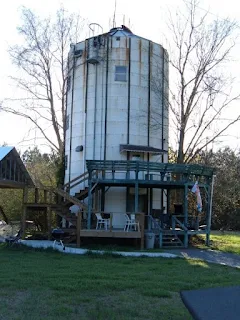“In our glorious fight for civil rights, we must guard against being fooled by false slogans, such as ‘right to work.’ It is a law to rob us of our civil rights and job rights.Its purpose is to destroy labor unions and the freedom of collective bargaining by which unions have improved wages and working conditions of everyone…Wherever these laws have been passed, wages are lower, job opportunities are fewer and there are no civil rights. We do not intend to let them do this to us. We demand this fraud be stopped. Our weapon is our vote.” —Martin Luther King, speaking about right-to-work laws in 1961
Not to take away from the celebration of his life and work, but we still have an awful lot of work to do. Some would say that the best way to celebrate Dr King's legacy is to continue to fight on for better conditions for all workers, everywhere.
Aside from fair labor laws, perceptions must be addressed that harm a worker's - any worker's - ability to prove themselves. These perceptions include those about age. I wrote about this awhile back, recognizing that the best way to destroy perceptions that limit our opportunities is to refuse to bow down to them.
Five Things that Make a Difference in a Later Career Job Search
Revisiting this particular issue, because it's been a few years and it's apparently still a thing - perhaps even more so.
A recent PBS Newshour segment further elucidated the general public on this problem. Clearly, it's still a great idea to de-emphasize the length of your work history in favor of highlighting skills, accomplishments, and knowledge. In fact, this is where those of us with long work histories should be shining. After all, with years of experience we've had enough time to gather rosebuds and honors in bulk. Instead of listing each one in chronological order, we have the distinctive capability to pick and choose among the best of those.
Why, indeed.
In an article published by the John C. and Nancy D. Whitehead Chair in Economic Studies at the Brookings Institution, Dr Gary Burtless, of the Center for Retirement Research at Boston College, describes his study that makes it clear that aging does not affect productivity. In fact, his research shows that older workers frequently command a premium wage that reflects their contributions to the workforce.
Unfortunately, in a time of hard scrutiny of a company's bottom line, this premium - even well-deserved - can be a factor in a decision to hire a new, older-aged worker. Sometimes, we are forced to agree to wages that are competitive with those earned by younger workers, or lose the job. Counter-acting these decisions may not be something that is in everyone's control. Only by demonstrating repeatedly how well we do can we expect to change the perception that our value may be diminished by our age.
We must continue to educate ourselves, to diversify our incomes, to seek out opportunities to cash in on our knowledge and experience. One way to do that is to publish. Another way is to teach. Of course, the wiser employer will encourage knowledgeable, experienced employees to mentor and demonstrate to younger, less experienced. However, we can't always count on this. As employers continue to pare back (whether or not it is in anyone's best interests, even their own), we cannot limit ourselves to what "the market will bear." The promise of capitalism isn't The American Dream, no matter what we once believed. It's just a chance to compete. That is all.
The American Dream is the fact that we actually can imagine ourselves better.
What does this mean, exactly? To be quite honest, it's a myth that creativity and imagination coupled with hard work that leads toward a better life exists solely in the United States. It's a human challenge that frankly, other countries do just as well, perhaps some even do it better. The real challenge for all of us no matter what our age is to do our best, every single day. Some days will be better than others. Some days will plainly be forgettable.
Don't settle for less than your best, every single day. And it's up to you to define exactly what that is.






















